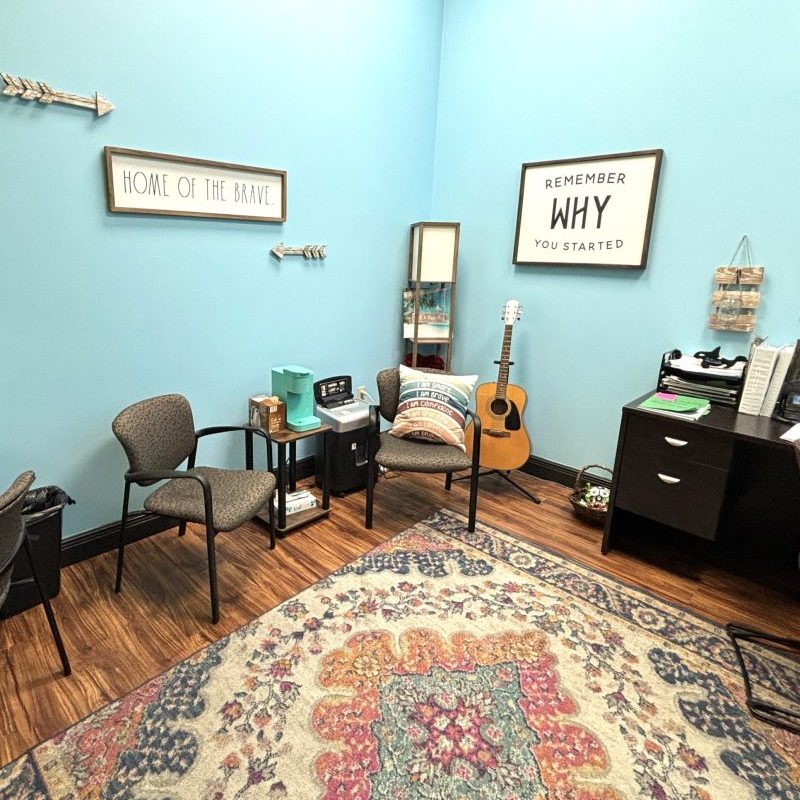
Bulimia Treatment for Troubled Teens
Life-changing care for teens struggling with bulimia and their families in South Florida

GET IN TOUCH WITH AWA TODAY
**Note we are not a crisis hotline, in case of an emergency. pleace call 911
By completing this form you provide express written consent indicating a willingness for us to call you or contact you via SMS no more than 4 times per month. Standard messaging and data rates apply. Text STOP to opt-out anytime. We will never share your information. Please see our privacy policy.
AWA does not support: Medicaid, KidsCare, or Sunshine and does not offer Residential or 1 on 1 therapy.
For Teens Ages 13-17 and Their Families
Available Day Program or Afterschool Program
In-Network with All Major Insurance Providers
Hablamos Español
Table of Contents



The Adolescent Wellness Academy & Eating Disorder Programs
We help troubled teens with bulimia feel safe, seen, and supported as they heal.
At AWA, we offer eating disorder treatment for teens who struggle with bulimia and related challenges.
Our Miami-based programs for troubled teens provide a structured, supportive space to build healthy habits, self-worth, and a stronger relationship with food and body image.
Holistic Healing: We approach bulimia through emotional, behavioral, and nutritional support.
Evidence-Based Care: Our team uses clinically proven therapies, including CBT, DBT, and nutritional counseling.
Family Involvement: Parents are key to lasting recovery – we empower the entire family to heal together.
Bulimia Treatment Programs
Therapeutic Day Program
A comprehensive daytime experience offering clinical support and academic continuity. Ideal for teens needing structured support during school hours.
- Weekly psychiatric assessment
- 1 hour of individual therapy per week
- 4 hours of daily therapeutic groups
- On-site school support
- Clinical support for crisis management
- Weekly Parent Support Group
- Nutritional support as required
Intensive Outpatient Program
Our afterschool program is designed for teens with bulimia who need support but can still maintain school attendance. Offered 3–5 days per week.
- 1 hour of individual therapy per week
- 3 hours of daily therapeutic groups
- Clinical support for crisis management
- Weekly Parent Support Group
- Nutritional support as required
Getting Started
1
Reach Out
Call or email us, and we will get to know your loved one’s concerns. Our Admissions team will understand your teen’s needs. We will verify your insurance coverage and work with you to find a solution that will help you with your financial situation.
2
Complete Assessment
An assessment process is designed to gather information about the teenager’s mental health history, symptoms, triggers, and any previous treatment experiences. This assessment helps in tailoring the therapy program to address specific needs effectively.
3
Schedule First Session
After completing the assessment, patients can schedule their initial therapy session. This session allows the therapist to evaluate the teenager’s condition further, establish rapport, set treatment goals, and discuss the overall therapy plan moving forward.
Posted onTrustindex verifies that the original source of the review is Google. We are so grateful to have found Adolescent Wellness Academy. The entire staff was incredibly helpful, professional, and welcoming from our first phone call. Anny got us in right away, Frank immediately connected with our daughter, and all of the therapists made her feel heard and understood. She was "keyed out" and has maintained the skills and strategies she learned there. While our daughter was able to get the help she so badly needed, Mike's parent groups were a lifeline for my husband and me during our family's crisis. We find ourselves referencing Mike's words of wisdom on a weekly basis. We will continue to recommend Adolescent Wellness Academy to parents of teens who are struggling.Posted onTrustindex verifies that the original source of the review is Google. I was very fortunate to find the Principles recovery Teen Wellness Center when I did. They took my daughter in and we went through the 10week program. With their help, she learned to take accountability for her actions. They helped me and my husband as the parents teacher our daughter how to cope with anxiety and mental stress. There so many things teens go through that are in the mental stress bag. From anxiety to self harm to drugs, etc. it was hard to go through it but we came out of it with new knowledge with a respectful child that wants a second chance and a family that can repair the relationship and heal together. I recommend the program and staff to all parents that have a child going through mental stress of any kind. Contact the program and they will guide you. Thank you from the bottom of our hearts❤️Posted onTrustindex verifies that the original source of the review is Google. No tengo palabras para describir nuestra experiencia en este centro de rehabilitación, después de más de 2 años buscando ayuda por la adiccion a la marihuana para mi hijo adolescentes de 17 años encontramos este que si pudiera le diera más de 5 estrellas, no solo lo ayudaron a poder dejar la adiccion si no que hicieron que mi hijo sintiera amor propio y encontrarle sentido a la vida, mi hijo pudo graduarse y estamos muy contentos con esta institución la recomendaría 1000 veces, nos han ayudado mucho como familia, incluso después de graduarse siguen preocupados y le siguen dando seguimiento a sus pacientes, todos los empleados tienen muy buena actitud y siempre están dispuestos ayudar desde, el dueño, los terapistas en especial Mike y Ben y Anny la directora de admisión son especiales, sin duda el mejor Centro de Rehabiliacion muyyyyyy sastusfecha.Posted onTrustindex verifies that the original source of the review is Google. The staff here is excellent-very experienced in working with teens and very responsive to parents. I think it’s a productive approach to therapy in that it involves both the parents and the kids, and also allows the kids to share with their peers in a safe place. Also focuses on the roots of issues rather than just the symptoms.Posted onTrustindex verifies that the original source of the review is Google. My daughter was a trouble teenager, she suffered from depression, self harm, low self esteem. Looking thru places for her for help I’ve found this academy in which I love that it’s a everyday therapy not just for her but for parents too Their staff are lovely, experienced and on point in every subject. They even offered referrals to continue therapy after their sessions. I would recommend this place to anyone. The help is not just for the trouble person, their help is for the whole familyPosted onTrustindex verifies that the original source of the review is Google. Posted onTrustindex verifies that the original source of the review is Google. Can't thank them enough for what they have done with my son. The staff really cares and it shows by their dedication of helping each client with tools to get them in a better place mentally. My son went in for anxiety and depression and by the end of it he was confident and excited about his future. He was given tools and resources to continue to get better. I don't know what would have happened if I didn't find this place. Best decision I made for my son.Posted onTrustindex verifies that the original source of the review is Google. I don’t have enough words of how thankful my family is with the center for helping us with my son. We where struggling with my adolescent with anxiety, depression, gaming addiction, and trouble cooping at school. The team is so professional, they really understand this age, but mostly of all they provide the tools and follow up for a successful recovery. My son is back in track, and mostly of all he is happy. Thank you Ben, Frank, Mike, Alyssa, Annie, and the rest of the team. We are very grateful.Posted onTrustindex verifies that the original source of the review is Google. I believe Adolescent Wellness Academy is the best help teenagers in Broward County can get. Their therapists are really top-notch and care. Highly recommended!Posted onTrustindex verifies that the original source of the review is Google. Principles Recovery Center/ Adolescent Wellness Academy has been critical in the progress my loved one has made. He has graduated from the program after 5 months with the tools and confidence to continue a path of sobriety and mental health. From the intake interview with Frank, to the parent support meetings with Mike, and the communication and follow through from Sophie- I cannot say enough good things about this Intensive Outpatient Program (IOP) for adolescents. Their ability to capture the interest of teenagers FIRST by building a community of their peers was instrumental in the progress of my family member and my family overall. My family member was held accountable by not only staff members but more importantly his peers. I have been a professional educator for decades and have now recommended this program to families who struggle with teenage substance abuse or mental health issues. Their clinical approach is research-based and consistent. But most significant is a personal touch and human connection that is genuine and authentic. They really care about these kids and it shows in the outcomes. Forever grateful I took the recommendation from staff member Rebecca ( a friend of my best friend) to enroll in the program. I remain optimistic that while there will always be bumps in the road when raising teenagers, we will all be better able to navigate and deal with what lies ahead.
In December 2024, my 17-year-old daughter was having serious behavioral problems, AS, and was making an attempt on her life😢. When I spoke to the place they gave me an immediate appointment and when I arrived at the center Anie welcomed my husband, my daughter and me. She was very clear, respectful but with a lot of character (something that I appreciate 1000%), she scolded the three of us, she told us the problems that we as parents allow with our little girl, She spoke to us so loud and clear that I immediately assumed that we had a serious problem with our daughter but at the same time I felt a lot of peace because I realized that we were in the right place (God gave us this group of Angels dressed as people) and that was how my daughter decided for herself that she should take this path, The three of us attended each week for my daughter's start, and I must say that each of the people called: Reception, Therapists, floor hangers, coaches, etc. Each of them always received us with a smile and we never felt in their eyes that they were being judged or criticized for the situation. Every Thursday there is a parent meeting in a help section and it is something so healthy for our Souls and minds that this therapy helps us so much to understand the part that we did wrong and what we should not continue doing. To date, I must say that my daughter has recovered 200%, she is clean, she is happy with her life and with her family, she has goals, other friends, she is in better shape talking about nutrition since she had bulimia problems, she was in AWA almost four months and I must say that she is now living happily and we as parents continue working and our daughter also continues in therapy only once a week to reinforce everything she learned at AWA.
So if you ask me if I recommend this divine place? Yes 10000% 🥰
Thank you so much to everyone for your great support and help. ♥️ we will always be indebted to you!!!🥰🥰🥰🥰🥰
Why Choose AWA
Our program’s positive impact and strong outcomes are the driving force behind our work. Seeing families thriving and witnessing the transformation of the teens fills us with a sense of purpose.

Your care is
covered here
We understand that you have more pressing concerns right now, the cost of teen mental health and substance abuse treatment should not be one of them.
We are in-network with all major commercial insurance providers in Florida.
We’d like to handle the insurance details so that you can focus on what truly matters.






























Our Bulimia Treatment for Teens Locations
Facilities for troubled teens, bulimia treatmen,t and therapies are available at the following locations:

Our dedicated team
Our compassionate team goes above and beyond to support you and your troubled teen on the healing journey.
We have an experienced clinical team with several mental health experts and multiple specializations.
Here, your family is in great hands!
What Makes Adolescent Wellness Academy Different
When you join our therapy or afterschool programs, you enter a caring and non-judgmental community. This support network involves teens, their families, peers, and our team. Together, everyone plays a role in supporting each other while our clinicians create a safe space for this supportive community to flourish.
- Building resilience
- Fostering self-discovery and awareness
- AWA offers a treatment experience beyond managing symptoms, aiming for transformative healing and lasting change
- Engaging in creative and experiential activities offers various clinical benefits.
- Our programs demystify mental health
- Family Connection
What AWA Bulimia Therapy Treats
Teen bulimia is rarely just about food. At Adolescent Wellness Academy, we recognize that bulimia often reflects deeper struggles with control, self-worth, perfectionism, and emotional pain. Our team works to uncover and treat the complex roots of this disorder because healing starts with understanding.
Mental health challenges are rarely isolated. Teens experiencing bulimia may also be dealing with a combination of psychological, emotional, and behavioral issues. Our programs for troubled teens in Miami are designed to address co-occurring disorders in a comprehensive, compassionate way.
Common Issues Treated Alongside Bulimia Nervosa:
Body Dysmorphic Disorder (BDD): Teens may obsess over perceived physical flaws, especially related to weight and appearance.
Depression: Feelings of sadness, hopelessness, or guilt often accompany eating disorders and can fuel the cycle of disordered eating.
Anxiety Disorders: Social anxiety and generalized anxiety often coexist with bulimia, especially around food, body image, and control.
Obsessive-Compulsive Disorder (OCD): Repetitive behaviors like purging or rigid food rituals can mirror compulsive patterns seen in OCD.
Post-Traumatic Stress Disorder (PTSD): Trauma, whether from bullying, abuse, or other experiences, can contribute to eating disorders.
Self-Harm: Some teens struggling with bulimia may also engage in cutting or other self-injurious behavior as a way to cope.
Substance Use: To suppress appetite or numb emotional pain, some teens turn to alcohol or drugs, especially stimulants or diet pills.
Bipolar Disorder: involves cycles of depressive episodes and periods of mania or hypomania.
Post-Traumatic Stress Disorder (PTSD): PTSD can develop after exposure to a traumatic even.
Obsessive-Compulsive Disorder (OCD): OCD involves recurring, unwanted thoughts (obsessions) and repetitive behaviors or mental acts (compulsions).
Eating Disorders: Conditions such as anorexia nervosa and binge-eating disorder are often associated with depression.
Benefits for teens receiving treatment
Teens receive educational support to ensure they stay on track in school while pursuing their therapeutic goals.
We recognize that personal growth involves self-discovery, and the pace of this journey varies for each individual. Teens participate in the program for 4-12 weeks and then drop down to our lower level of care (IOP).
Each client has an individualized treatment plan developed by a multidisciplinary treatment team. Our program offers a mix of individual and group therapy where families are fully involved.
Our program also offers a community where troubled teens (and parents) experience a sense of belonging. In groups, teens learn from each other, find other teens going throught the same challenges as them, practice compassion and develop social skills. This is where the real magic happens.
Reach out to us today! You'll never be alone again.
All calls are confidential.
We accept most insurance but do not take Medicaid at this time.
How to tell if your child may be suffering from depression
What to look for
- Preoccupation with weight, calories, or body image
- Binge eating followed by purging (vomiting, laxatives, etc.)
- Frequent trips to the bathroom after meals
- Skipping meals or rigid dieting behavior
- Mood swings, irritability, or social withdrawal
- Shame, secrecy, or lying about food habits
- Wearing baggy clothes to hide body shape
Symtoms your child may be experiencing
- Swollen cheeks or jaw (from vomiting)
- Dental erosion or sensitive teeth
- Chronic sore throat or acid reflux
- Fatigue or fainting
- Irregular menstrual cycles
- Calluses on knuckles (from induced vomiting)
- Digestive issues and constipation
At AWA, we provide a safe space for teens to talk openly about these challenges without judgment. Our holistic model addresses both the eating disorder itself and the underlying issues that contribute to it, supporting lasting recovery and emotional well-being.
Bulimia in Teens – The Silent Struggle
Bulimia nervosa often hides in plain sight. Many teens suffer in silence, masking emotional pain with secretive behaviors. Early intervention is critical.
These numbers underscore the urgent need for compassionate, evidence-based programs for troubled teens, ike those offered by AWA in Miami and across South Florida.
Frequently Asked Questions
If your teen shows signs of binge eating followed by purging, is overly focused on weight or appearance, frequently excuses themselves after meals, or shows secretive or ritualistic behavior around food, it may be time to seek help. Bulimia can be life-threatening, and early intervention makes a critical difference.
Not necessarily. Our afterschool IOP program is designed so teens can continue their education while receiving intensive therapeutic care in the afternoons or evenings. For those needing additional structure, our full-day therapeutic program includes academic support to keep them on track.
Yes. While some teens may benefit from medication (especially if bulimia co-occurs with depression or anxiety), most experience positive outcomes through therapy-focused treatment, including cognitive behavioral therapy (CBT), nutrition counseling, and family-based approaches.
A major one. At AWA, we believe family involvement is essential to lasting healing. Parents participate in weekly support groups, therapy sessions, and ongoing communication with our clinical team to help reinforce recovery at home.
It’s not uncommon for teens to resist help at first. Our team specializes in building trust with teens in a non-judgmental, supportive way. Many teens who begin reluctantly come to value the relationships and support found in our program.
No. While bulimia is more commonly diagnosed in girls, boys and non-binary teens can also struggle with disordered eating and body image issues. Our programs are inclusive, trauma-informed, and designed to support all teens.
Reassure your teen that they are not alone and that help is on the way. Avoid making food the focus of conversations—instead, focus on your teen’s feelings, stressors, and sense of control. Keep regular routines in place and model healthy emotional expression.















